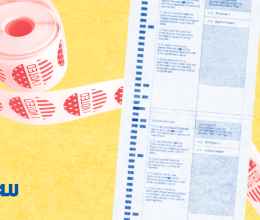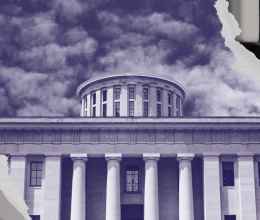This ACLU of Ohio Op/Ed originally appeared in The Cincinnati Enquirer on 6/25/2014
Mike Brickner is senior policy director for ACLU American Civil Liberties Union of Ohio.
“This is not what democracy should look like.”
It was my first thought as I watched the television on Nov. 2, 2004.
Footage of voters who had waited in line for eight or 10 hours just to cast their ballot played as results scrolled in the background. Not everyone was able to wait in line all day. Some interviews included would-be voters who had encountered the long lines, were tripped up by convoluted laws and last-minute changes to voting rules, or were told the wrong polling location by an election official and simply walked away. It was chaos.
Following the problems in 2004, officials took meaningful steps to make the election process more accessible and fair for voters. New legislation with bipartisan support expanded opportunities for early voting both by mail and in person. For the first time, voters could cast a ballot by mail without an excuse, and many voters received applications for mail-in ballots automatically.
Hundreds of thousands of voters cast their ballot early in person at their board of elections. Many working Ohioans voted early on the weekends or in the evenings, as they must continue to juggle inflexible work schedules and child care needs in these difficult economic times.
These changes have been wildly popular with voters. New research by the University of Akron found 60 percent of Ohioans believe early voting has helped the state; 51 percent believe voters should have a full four weeks to cast their early ballot.
As quickly as these improvements were made, new efforts to roll them back were spawned. At nearly every turn, both the courts and the public pushed back on these efforts. Most recently, a federal judge restored the last weekend of early in-person voting before Election Day. This is a critical step toward protecting the early voting opportunities that have served Ohioans well, but much more must be done.
What should democracy look like? It must be a system where opportunities actually meet the needs of the people, and are not manipulated or scaled back for partisan political gain.
The ACLU has litigation pending in federal court challenging cuts to the number of days of early voting, early in-person evening hours and additional weekends for Ohioans to cast their ballot. The lawsuit was filed on behalf of stalwart civil rights groups like the NAACP and League of Women Voters, as well as churches that utilized these opportunities. We will continue to fight for as much access to early voting as possible because we recognize it has largely worked to decrease the long lines and confusion of the past, and it is essential to voters who want to cast their ballot in-person, but must vote early.
Voters who live in large cities or small towns alike encounter issues such as rigid work schedules, child care duties, lack of access to transportation, disability or other health care concerns, all of which might make casting their ballot on a Tuesday in November difficult. By offering a multitude of early voting opportunities statewide, both in person and by mail, we are better able to provide access to all voters regardless of their political ideology.
Concerns that early voting on weekends and evenings may make it difficult for officials to administer elections are dubious, since the counties that have had weekend and evening early voting have not had widespread problems implementing them. In any event, difficulties in election administration should be addressed by modernizing our antiquated voting system, not by making voting harder. Advances like online voter registration and electronic poll books can streamline the process and enhance the elections system for officials and voters alike. Both of these advances have enjoyed bipartisan support in Ohio, yet have not been broadly adopted by our Legislature.
A perfect vision of democracy is to have everyone who wants to participate doing so, but that can only happen if our election system keeps pace with the demands of voters’ lives. If politicians truly want to encourage citizens to participate in our democracy, they must offer a wide array of opportunities to cast our ballots, and not seek to restrict those options to manipulate the political system. They must bring our voting system into the 21st century both in terms of our technology and the opportunities we provide. If we settle for anything less, we will continue to struggle with a system that is often one step forward and two back.






